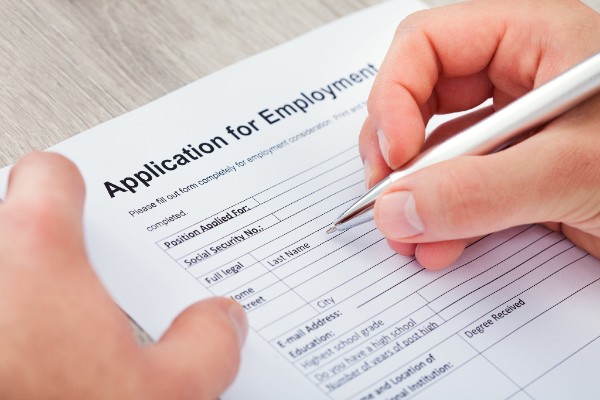Happy Friday the 13th, we hope it’s relatively uneventful for you….
In this edition of the newsletter we have a look at the recent focus on well-being and our blog focuses on supervision. It’s not all quiet on the western front though. The Law Society has issued its response to the SRA’s proposals (in summary: not keen); the LSB has approved the SRA’s request to make it easier for firms to change regulators (could be big news for conveyancers); and we bring you an interesting story of a solicitor struck off for failing to obtain references, as well as our usual rundown of disciplinary decisions.
Don’t forget to start those PC renewals nice and early. How are you finding the first year’s Continuing Competence reporting – a doddle or administrative headache getting everyone to make the declaration?
We hope you find it useful and as usual, please do get in touch.
All the best,
Jon and the team

Who supervises the supervisors?
Supervision is really important. We all know this to be true. Not only is it a regulatory requirement, good supervision also helps to motivate staff and improve the quality of the firm’s output. This week Lisa’s blog looks at supervision systems, and provides some top tips to help you check and ensure that supervision within your firm is effective.

Switch regulators with ease
In a move which will ‘remove barriers to firms wishing to switch regulators’, the LSB has approved a rule change by the SRA which means that firms will no longer need to obtain six years of indemnity insurance run-off cover if switching to another regulator.
Why it matters
The profession takes another big step towards the prospect of ‘regulator shopping’. Don’t like the SRA? Prefer to practise under a smaller, friendlier, perhaps more specialist regulator? This could now be a realistic option for many. We could potentially see many firms switch, or hive off entire departments, to other regulators such as the Council of Licensed Conveyancers, Cilex and the BSB.

The new wild west
The Law Society has expressed concerns that the SRA’s proposed Handbook reform will create a ‘wild west marketplace for legal services’.
The main concerns are that ‘solicitors would be subject to entirely different regulation depending on where they practice’, and the removal of the need for solicitors to be 3 years qualified before setting up their own practice,‘could put vulnerable clients with complex legal problems in the hands of inexperienced, unsupervised lawyers’.
On the issue of price and quality transparency, Law Society president, Joe Egan, also expressed concerns that solicitors would be forced to publish a ‘raft of information without proper context’, whilst unregulated entities could not be forced to do so.
Why it matters
These are certainly valid concerns that are no doubt echoed by much of the profession. We are extremely skeptical about the wisdom of allowing newly qualified lawyers to set up on their own – really, what was the thought process here?
Mandatory publishing of price and service data will also be contentious, although we suspect there will be a wider divergence of opinion.
What about regulated solicitors practising in unregulated businesses, without mandatory PI insurance? Good for competition or serious risk to clients?
What do you think – has the SRA thought all of this through? Remember to have your say in the SRA consultations, which are open until the 20th December.

Struck off the roll for no references
Solicitor Ernest Mugadaza was struck off the roll by the SDT in a hearing on the 6th September 2017. He recruited two individuals, named simply as Mr NK and MR RW, who went on to carry out a series of property frauds. The SDT found that he failed too carry out adequate enquiry into their employment history and right to work in the UK.
They also found that he failed to provide adequate supervision or control over Mr NK (see supervision blog above!)
Why it matters
On first glance of this story, it is easy to assume that Mr Mugadaza made no checks, but that’s not the case. He obtained Mr NK’s passport, utility bill and practicing certificate, but the passport was expired and the details on the practicing certificate were false (it appears that he had superimposed his details onto a practicing certificate).
There are a few lessons here. Firstly do your checks, but also your due diligence. It is not enough to simply obtain the documents and keep them on the HR file. As this case demonstrates, the consequences are too severe for you not to ensure background checks are done properly. If you are not doing the checks yourself, make sure you highlight this case to the person who does.

Focus on: Wellbeing in the profession
Recently there has been a lot in the legal press about health and wellbeing in the legal profession. It is increasingly being accepted that stressed out lawyers are unhappy and unhealthy lawyers, which is no good for anyone. Law is a naturally stressful profession, but it can be compounded by poor working practices, work overload, incompetent management and so on. Many of the larger firms make a big thing about their wellbeing initiatives to attract top talent, and the smaller firms are being encouraged to emulate the best bits of those programmes.
Why it matters
Compliance failures and disciplinary issues are often caused by stressed out solicitors who aren’t in the frame of mind to think about compliance, or are so anxious that they make a mistake and then attempt to cover it up. The SDT reports are littered with these stories.
Client service is bound to suffer if the fee earner is running close to the edge. Depression and anxiety can result in long term illness, with obvious knock on consequences for their employer.
The Law Society identified key questions that lawyers and firms need to address:
- How can we open up a dialogue about stress?
- What is the lasting solution to stress?
- How can you stop treating the symptoms of your stress and start tackling it at its route cause?
Lawcare is a specialist charity for the legal profession, providing practical help and support for a range of personal issues. Its services are free to anyone employed in the legal sector, and their families. Have a look at their useful toolkits as a starting point.
Disciplinary decisions
- Solicitor Ian James Anderson was struck off following a conviction for dishonestly for failing to inform the DWP of a change in circumstances that would affect his Employment Support Allowance.
- Stephen Andrew Alexander was fined £15,000 (and his firm fined £20,000) following an SDT decision – he disclosed the address of the firm’s client to her ex-husband (and former client), despite her specific instructions to the contrary.
- BBH (Legal Services) Limited was rebuked for failing to follow its own policies for identifying a client and failing to report to the SRA the consequences of failing to do so.
- Steve Ayakpo Binafeigha was rebuked and fined £2,000 by the SRA. Following a qualified accountant’s report the SRA carried out an investigation and found there was a shortage of £945 in the Firm’s client account and that the firms books of accounts were unreliable and incomplete.
- Former CILEx member Prince Adewale Adeola has been sentenced to five months imprisonment for providing unregulated immigration advice.






